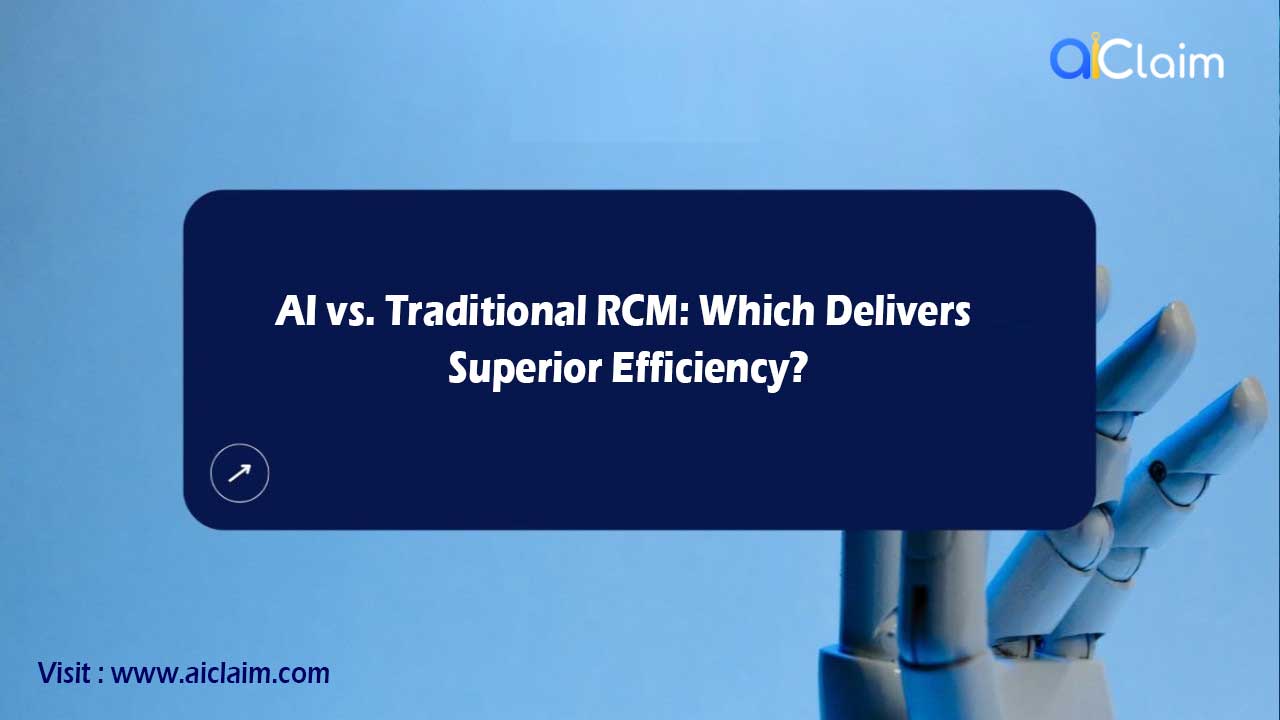Introduction
In the ever-evolving and complex world of healthcare revenue cycle management (RCM), claim denials continue to be one of the most significant obstacles to financial success. Every denied claim not only results in lost revenue but also adds an administrative burden and delays reimbursements, ultimately impacting a healthcare provider’s bottom line. Fortunately, with advancements in artificial intelligence (AI), providers now have a powerful tool to transform the way they handle denials in RCM—reducing losses, improving efficiency, and streamlining operations.
In this article, we will take a closer look at the hidden costs of claim denials, explore the common reasons behind them, and discuss how AI-driven solutions can proactively mitigate these issues. By the end, you will have a clear understanding of how leveraging AI can ensure maximum reimbursement, enhance workflow efficiency, and create a smoother revenue cycle.

The Financial Impact of Claim Denials in RCM
Claim denials don’t just impact immediate revenue; rather, they create a widespread ripple effect that extends throughout the entire healthcare organization. To fully understand their consequences, let’s break down the key areas they affect:
1. Direct Financial Losses
According to industry reports, denied claims cost healthcare providers billions of dollars annually. Moreover, each denied claim leads to additional administrative work, time-consuming appeals, and, in some cases, a complete loss of revenue if the claim is not reprocessed. What’s even more concerning is that statistics reveal around 10% to 20% of claims are denied on the first submission. Even worse, nearly 65% of those denied claims are never resubmitted, resulting in significant financial losses for healthcare organizations.
2. Increased Administrative Burden
Effectively handling denials in RCM is not only challenging but also highly time-consuming, as it involves multiple manual processes. From identifying errors to resubmitting claims, each step requires significant effort and attention to detail. Furthermore, studies indicate that the average cost of reworking a denied claim is approximately $25. While this may seem manageable on a small scale, it quickly adds up for healthcare organizations that process thousands of claims each month, leading to substantial financial strain.
3. Delayed Cash Flow and Reimbursements
Denials not only result in delayed payments but also have a direct impact on an organization’s overall cash flow. As time passes, the longer a claim remains unresolved, the more challenging it becomes to recover the lost revenue. Consequently, this prolonged delay creates significant financial strain for healthcare providers, making it even more critical to address denials efficiently and proactively.
4. Compliance and Regulatory Risks
Frequent claim denials can do more than just disrupt cash flow—they can also trigger audits and raise serious compliance concerns. This is especially true when denials stem from issues like incorrect coding or improper documentation. As a result, providers not only face delays in reimbursements but also risk exposure to potential penalties, further complicating their financial and operational stability.
Top Reasons for Claim Denials in RCM
Gaining a clear understanding of why claims get denied is absolutely crucial for effectively preventing them in the future. By identifying the root causes, healthcare providers can take proactive measures to minimize errors and improve reimbursement rates. Some of the most common reasons for claim denials include:
- Coding Errors: Incorrect or outdated medical codes lead to automatic denials.
- Missing or Incomplete Information: Even a minor omission can cause rejection.
- Eligibility Issues: Claims submitted for ineligible patients or expired coverage.
- Authorization Issues: Services requiring pre-authorization but lacking proper approvals.
- Duplicate Claims: Submitting the same claim multiple times due to processing delays.

How AI Can Reduce Claim Denials in RCM
AI-driven solutions are rapidly transforming RCM by not only reducing errors but also significantly improving accuracy and automating complex claim processes. As a result, healthcare providers can streamline operations, minimize denials, and enhance overall efficiency. Here’s a closer look at how AI is making a powerful impact:
1. Predictive Analytics for Denial Prevention
AI has the capability to analyze vast amounts of historical claim data, allowing it to predict which claims are at high risk of denial. Moreover, by identifying recurring patterns and trends, AI enables providers to proactively address potential issues before submission. As a result, this not only minimizes errors but also significantly reduces the likelihood of claim rejection, ultimately improving reimbursement rates and financial stability.
2. Real-Time Error Detection and Correction
AI-powered tools play a crucial role in streamlining the claims process by proactively flagging errors before submission. Furthermore, they help ensure compliance with payer requirements by thoroughly checking for missing information, verifying medical codes, and correcting documentation errors. As a result, healthcare providers can significantly reduce the chances of claim denials while improving overall efficiency in revenue cycle management.
3. Automated Appeals and Resubmissions
For claims that do get denied, AI can streamline the appeals process by automatically generating appeal letters, providing insights into necessary corrections, and tracking the status of resubmitted claims.
4. Seamless Integration with EHR and RCM Systems
AI seamlessly integrates with electronic health records (EHR) and existing RCM systems, enabling real-time data analysis, reducing manual work, and ensuring that claims are accurate from the start.
5. Continuous Learning and Adaptation
Unlike traditional rule-based systems, AI continuously learns from past denials, improving its accuracy and helping healthcare providers proactively adjust their claim submission strategies.
Implementing AI to Minimize Denials in RCM
To leverage AI effectively, healthcare providers should consider the following best practices:
1. Choose an AI-Powered RCM Solution
Invest in a solution that offers predictive analytics, real-time error detection, and automation capabilities tailored to your specific needs. Learn more about our AI-driven RCM solutions.
2. Train Staff on AI Integration
While AI significantly automates many processes, it is equally important for staff to fully understand how to interpret AI-generated insights and apply them effectively. By combining AI-driven automation with human expertise, healthcare organizations can maximize efficiency, reduce errors, and make more informed decisions in revenue cycle management.
3. Monitor Performance Metrics
To effectively measure AI’s impact on revenue cycle management, it is essential to track key performance indicators (KPIs). Specifically, monitoring metrics such as first-pass claim acceptance rates and denial rates provides valuable insights into the effectiveness of AI-driven solutions. By consistently analyzing these indicators, healthcare providers can identify areas for improvement, optimize workflows, and enhance overall financial performance.
4. Collaborate with Payers
AI plays a crucial role in bridging gaps between providers and payers by proactively ensuring that claims meet compliance standards. Additionally, by automating validation processes and identifying potential issues before submission, AI helps reduce friction in the reimbursement process. As a result, healthcare providers can experience faster approvals, fewer denials, and a more efficient revenue cycle.
Conclusion
Denials in RCM are a costly challenge, but AI is proving to be a game-changer in the fight against revenue loss. By leveraging AI-driven solutions, healthcare providers can proactively prevent denials, streamline claims processing, and improve financial outcomes. Investing in AI not only enhances efficiency but also ensures a healthier bottom line for the future.
Explore more about how Aiclaim is transforming revenue cycle management with AI-driven solutions.
Related Pages:
Is your organization ready to reduce claim denials and maximize revenue? Schedule a Demo Today!




